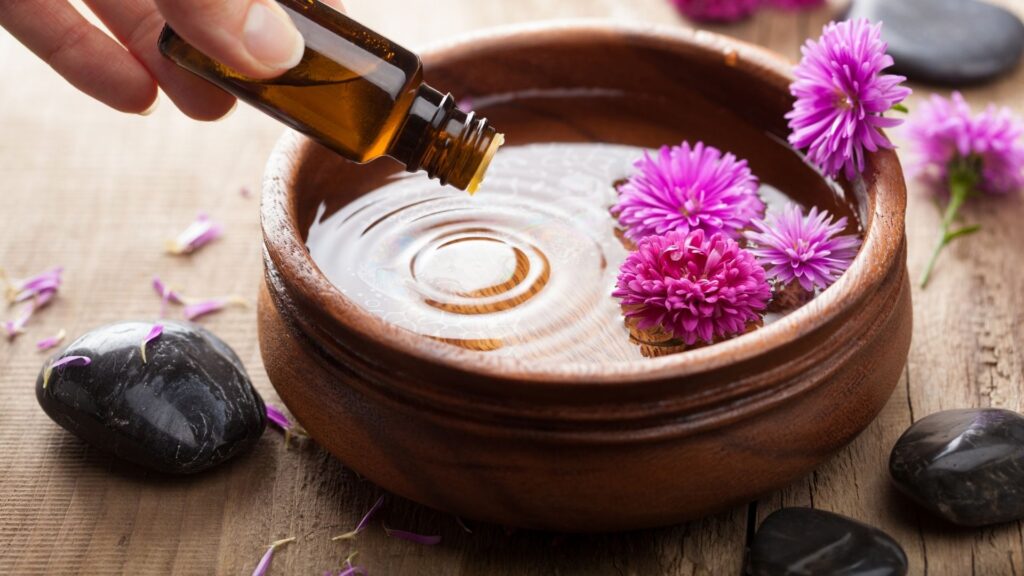
With Essential Oils. Live Holistically, Live Healthily
Almost every bottle of oil on the market is either an ingredient for cookery or an oil used in holistic treatments. No matter how they are utilized, oils are indispensable to human life. While you are cautious about the types of edible oils you consume, you may not have paid enough attention to the oils used for external body treatments.
Essential Oils. Essential oils are ubiquitous. These potent, aromatic plant extracts have been incorporated into lotions, household cleansers, massage treatments, and even complementary integrative therapy for the management of cancer symptoms. Right up arrow their putative benefits are also quite diverse, ranging from enhancing sleep and reducing anxiety to reducing pain and relieving headaches to calming an upset stomach and promoting deeper relaxation.
The Sirwiss network of spa experts has vast knowledge of essential oils and the potential benefits they can give when used correctly. This article will discuss essential oils. We will also go over the health benefits it offers. These will provide you with a comprehensive understanding of essential oils.
Continue reading to learn about the numerous applications for each of these oils.
What are Essential Oils?
Nature’s pure essence is essential oils. They are highly concentrated natural oils derived from plants, wood, bark, flowers, roots, and seeds. They contain strong antioxidants and have been used for thousands of years. Essential oils contain herbs that promote health and can be inhaled, diffused, taken internally, applied topically, and mixed into massage.
The Origins of Essential Oils
Essential oils were first documented in ancient India, Persia, and Egypt, according to the Encyclopedia Britannica. However, they have been employed for a wide range of purposes across numerous cultures for ages. Cosmetic and ointment usage of aromatic oils dates back to 4500 B.C.E. in Ancient Egypt, while its use in traditional Chinese and Indian medicine dates back to between 3000 and 2000 B.C.E. Similarly, aromatherapy’s been used for millennia to promote physical and mental health through the inhalation of aromatic materials like essential oils. Oils extracted from plants were given the name “essential” because of the widespread belief that they captured the true essence of the plants’ odors and flavors.
Methods for Inhaling Essential Oils
Inhaling essential oils through a diffuser, dry evaporation, aroma sticks, or steam is one of the most popular ways people use them.
Diffuser
This is a device that breaks down essential oils into smaller molecules and releases them into the air. Some technologies employ water and heat to evaporate the oils.
Aromatic Stick
An aroma stick, also known as an essential oil inhaler, is a portable plastic device having an absorbent wick at one end. The wick absorbs the essential oil, and the cover preserves it until you’re ready to remove it for a whiff. You can carry an aroma stick with you for aromatherapy inhalations throughout the day.
Dry Evaporation
Dry evaporation is exactly what it sounds like: releasing the aroma of an essential oil using a dry substance. Simply put a few drops of essential oil on a cotton ball, tissue, or other absorbent material, such as terra cotta, and let it evaporate into the air. You can either sniff it or keep it nearby.
Steam
Boiling a pot of water, removing it from the stove, adding 3 to 5 drops of an essential oil, and positioning your face over the pot to breathe in the steam are all steps in this procedure. The essential oil is instantly vaporized by the hot water, and it mixes with the rising steam. Take the pot off the heat and let it cool before leaning over it (and touch the pot with caution if the steam is too hot for you). Close your eyes and breathe normally while holding a cloth over your head to slow the discharge of steam. This will get the essential oil components into your lungs and respiratory tract.
Essential Oil on the Skin
Essential oils are also frequently used externally, either in a massage, a bath, or a skin care product. Nonetheless, most essential oils should not be applied to the skin without first being diluted. Carrier oils like jojoba, castor, or avocado oil are often used with essential oils applied directly to improve absorption, contribute nutrients, and prevent skin sensitivities. If you want to employ essential oils in a massage oil, it’s best to dilute them with a carrier oil to a concentration of no more than 1 percent, as recommended by the Earl E. Bakken Center for Spirituality and Healing at the University of Minnesota. For every teaspoon of carrier oil, you should add one drop of pure essential oil.
Health Benefits of Essential Oils
These oils are advantageous in a variety of ways.
1. They foster a positive mental state and environment.
2. Improve skin health
3. Purify your house
4. Encourage physical fitness
5. Enhances spiritual awareness
6. Relieves cold and flu symptoms
7. Get rid of cellulite and wrinkles
8. It aids digestion.
9. It regulates hormones.
10. Relieves discomfort.
Essential Oil Guide
Let’s read about a few commonly used essential oils.
1. Sandalwood Oil
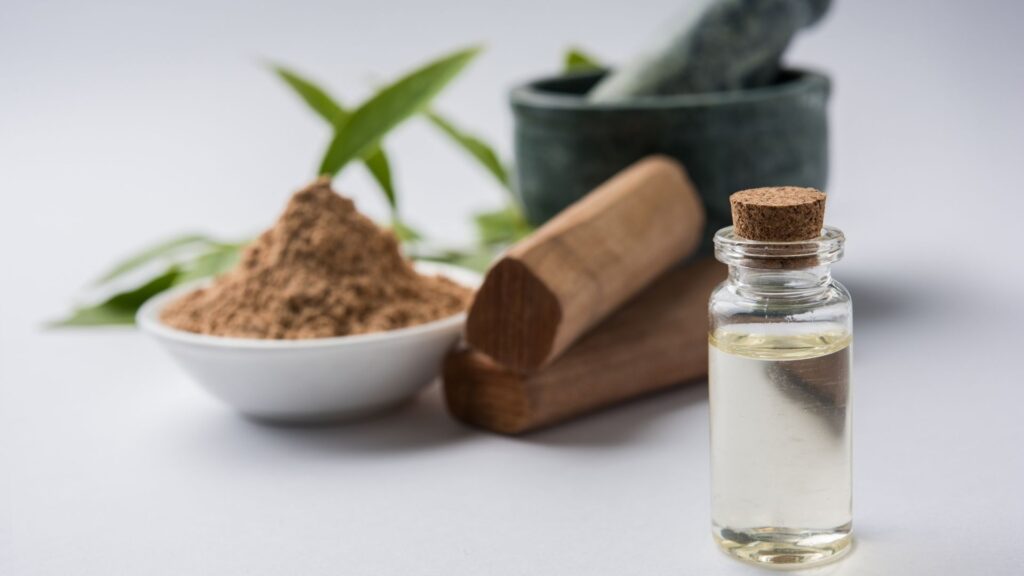
The best quality essential oil is harvested from 40-80-year-old sandalwood trees. Its exotic woody aroma is light but lasting. This oil’s primary active ingredients are Santyl Acetate, Santalol, and Santalenes.
It works well as an antiseptic and can be applied topically or taken internally without risk. There are powerful anti-inflammatory properties in sandalwood oil. It is an excellent remedy for inflammations of the neurological system and circulation. It does wonders for the skin and improves skin health significantly. This essential oil can be found in a wide range of cosmetics.
Sandalwood oil’s ability to eliminate gas also benefits the digestive system. Reduces urinary tract irritation and facilitates more comfortable urination. As a natural expectorant, it helps relieve coughs quickly. It reduces blood pressure. Milk or water combined with sandalwood essential oil has been shown to be effective in lowering blood pressure. It improves memory, calms an agitated mind, and is beneficial to one’s overall health.
2. Lavender Oil
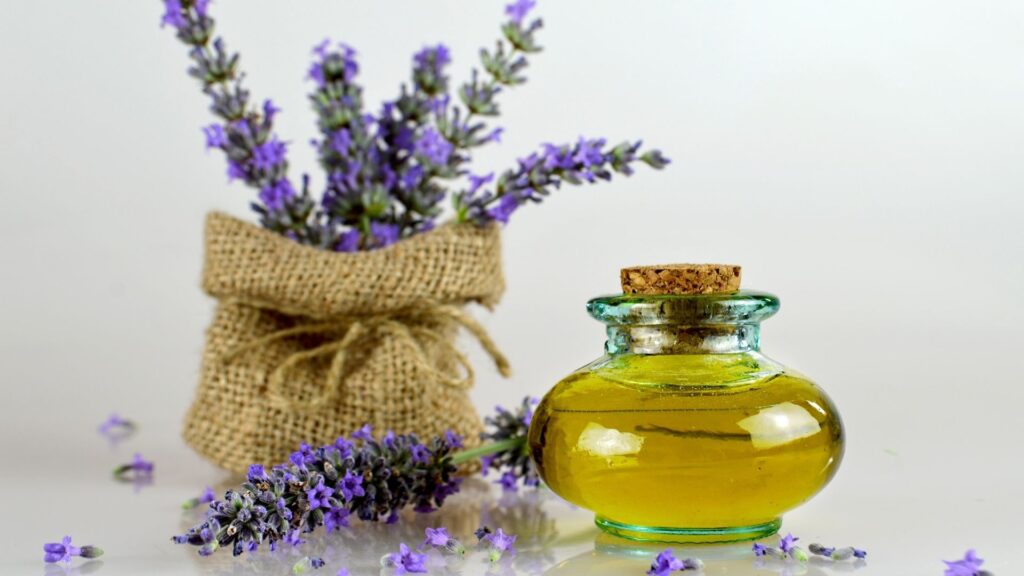
The beautiful lavender blossom is the source of this essential oil. Lavender flowers have been used for ages to make aromatic potpourri. Rows of stunning blue-violet lavender blossoms under a clear summer sky are conjured in memory by the lovely aroma of lavender oil. Lavender essential oil may be the greatest option if you have trouble sleeping. It calms the nerves and puts you to sleep. It works wonderfully for relieving anxiousness, stress, headaches, and sadness. Acne can be effectively treated with lavender oil, according to dermatologists. It works well on sore muscles, arthritic pain, backache, sprains, and lumbago. The hormonal balance is restored, and the cramping and inflammation of the urinary bladder are both lessened by the use of lavender oil. The health of your skin, digestive system, and immune system all benefits substantially.
3. Peppermint Oil
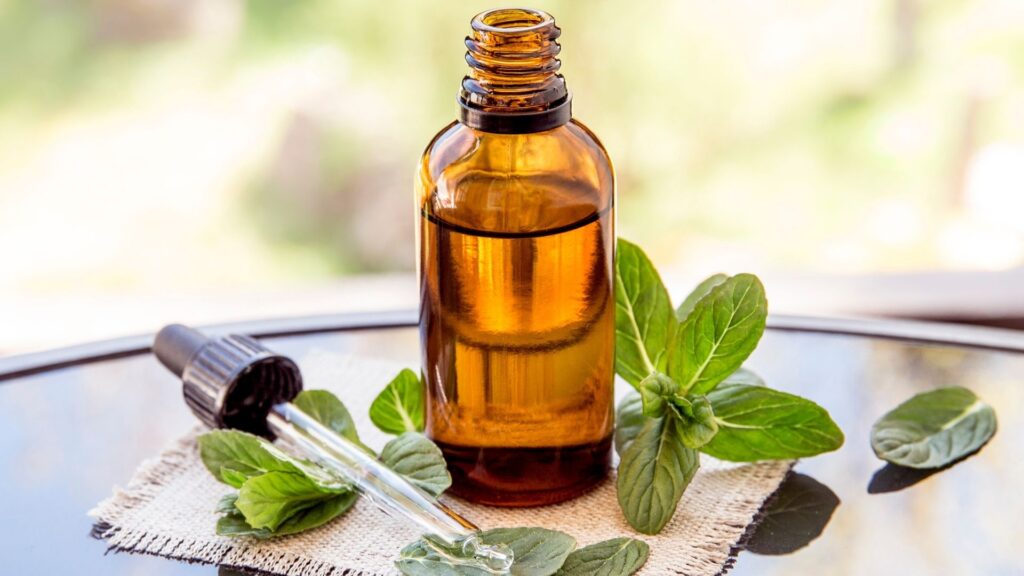
This essential oil rivals lavender for its versatility. It’s a sign of hospitality and its minty scent is refreshing. Peppermint oil has a relaxing and cooling impact when applied topically, making it ideal for relieving tight muscles. It helps you concentrate better, gives you more stamina, eases stomach pain, promotes better digestion, and relieves congestion in your nasal passages.
Peppermint oil has been used for centuries as a remedy for aches and pains. It can be used topically or consumed orally in the form of nutritional supplements. Irritable bowel syndrome and indigestion symptoms are alleviated. It helps prevent bacteria growth and eliminates foul breath. It protects teeth and gums from harmful bacteria. When applied topically, peppermint oil effectively eliminates nail fungus.
If you’re feeling queasy, try some of this oil. It can be used as an alternative to anti-nausea medication during chemotherapy. Women undergoing breast cancer therapy may find relief from hot flashes by using peppermint oil. Because of its lipophilic characteristics, it is an effective remedy for chronic herpes. Stress, melancholy, and mental weariness are all alleviated. The skin and hair benefit immensely from this oil’s nourishing properties.
4. Rosemary Oil
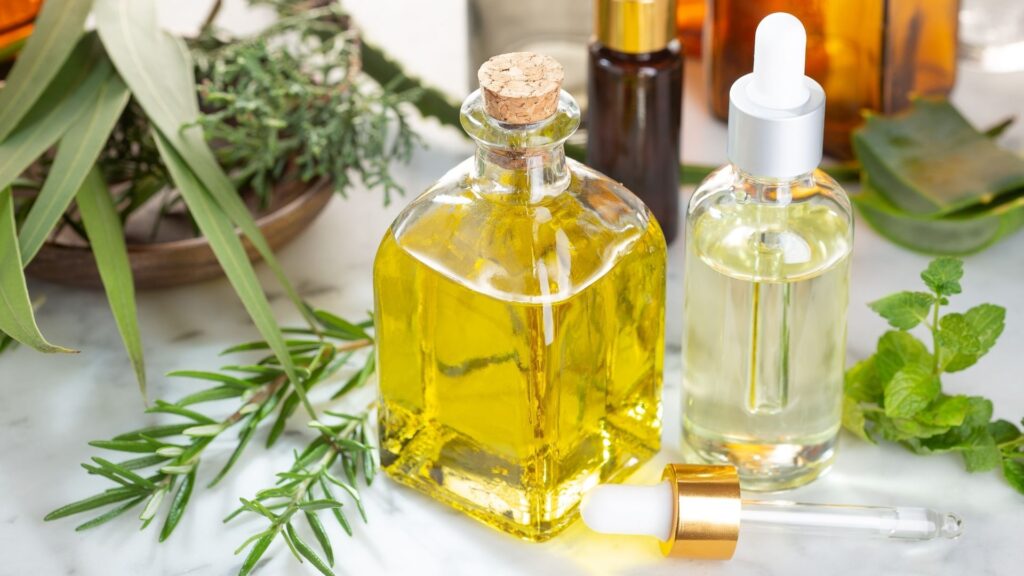
This oil has a wonderful backstory, and it smells both woodsy and lemony. When resting, the Virgin Mary allegedly draped her blue garment over a Rosemary bush. Then the white blooms started to turn blue.
Flatulence, constipation, bloating, and stomach cramps are among the conditions that benefit greatly from this oil’s soothing effects. Chronic stress is adequately mitigated. A recent study found that 5 minutes of inhaling rosemary oil greatly lowered levels of the stress hormone cortisol. Aromatherapy and massage with rosemary oil have been shown to boost the body’s natural ability to neutralize harmful free radicals. This means it improves health by boosting the immune system and antioxidant activity.
Muscle discomfort, headaches, and arthritis are just some of the conditions that it is used to treat. Congestion in the throat can be alleviated by inhaling the aroma of rosemary oil. Bronchial asthma sufferers can benefit from this essential oil’s antispasmodic qualities.
5. Bergamot Essential Oil
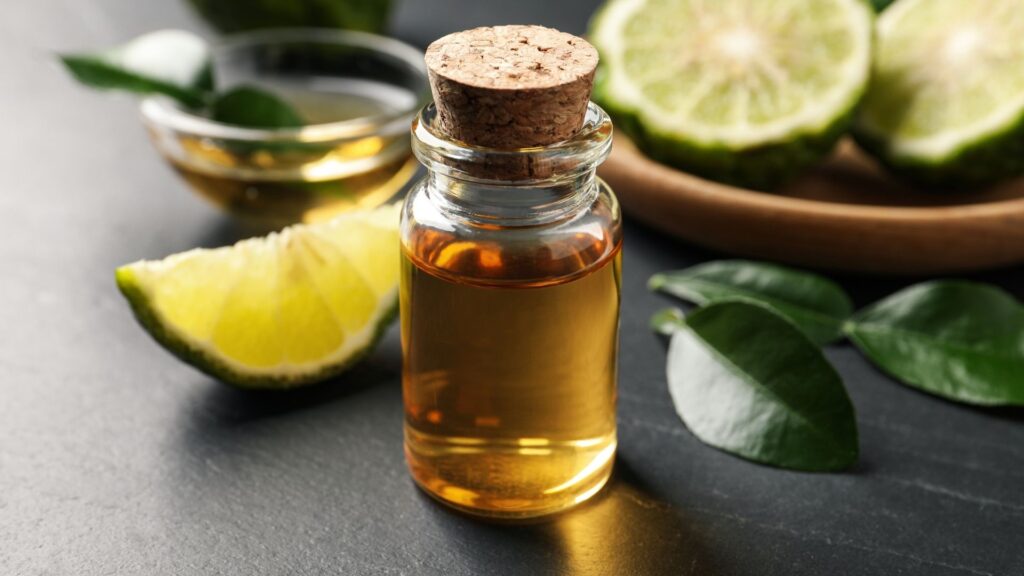
A hybrid of the lemon and orange trees, Bergamot is a citrus hybrid. The benefits of this sweet-smelling oil are plentiful. The perfume of this essential oil is one of a kind, combining fruit and spice. There are calming, antispasmodic, pain-relieving, and bactericidal properties in bergamot essential oil. It works well on meningitis and infections of the urinary tract. If you want to stop a bacterial infection in your bladder from entering your urethra, try adding a few drops of bergamot oil to your sitz bath or hip bath.
This essential oil can be used in place of statins, which are pharmaceuticals used to decrease cholesterol. Herpes, cold sores, and mouth ulcers heal faster after using it. It’s fantastic for fighting off yeast infections. Bergamot oil can be used to treat and prevent skin disorders brought on by fungi. Bergamot oil, when used in aromatherapy preparations, helps calm patients’ nerves before surgery, say specialists. Chronic weariness and sadness are alleviated as a result. It is an effective natural pesticide.
6. Tea Tree Oil
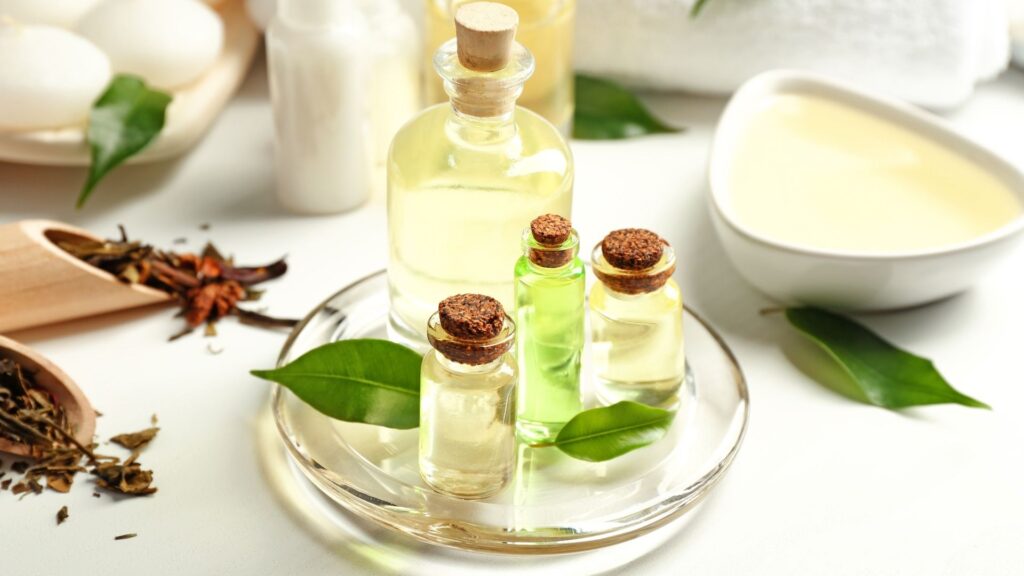
As a result of its versatility, tea tree oil has been dubbed the “jack of all trades” in the field of natural medicine. Indigenous Australians place a high value on the tea tree plant. Aboriginal cultures reportedly use crushed tea leaves to treat wounds, burns, and infections, based on research from the University of Sydney.
The therapeutic qualities and camphor-like aroma of this oil are extraordinary. Use it as an acne treatment! Like benzoyl peroxide, but without the discomfort, this works wonders. The hair benefits greatly from tea tree oil. You can use it to heal dry, flaky skin, get rid of dandruff, and even kill lice. It’s a fantastic disinfectant and antibacterial agent. You can use this essential oil for eczema and psoriasis.
An eczema cream containing tea tree oil was developed by Dr. Axe. In a teaspoon of coconut oil, combine five drops each of lavender and tea tree oil. You can now enjoy this fantastic lotion. It has been found that tea tree oil is effective against ringworms and toenail fungus. Use it in homemade toothpaste to give your teeth a healthy boost. Create your own toothpaste by combining tea tree oil, coconut oil, and baking soda. There is evidence that tea tree oil can help fight cancer.
Is It Safe to Use Essential Oils?
While many essential oils provide no health risks when used properly, others may interact negatively with other medications. Before utilizing essential oils, dilute them. Always check with a medical professional before giving anything to a baby or child. Perform a patch test in case of allergies. Some citrus oils can cause serious skin damage if exposed to sunlight. You should stay out of the sun after applying these oils topically.
One of the best ways to relieve the stress of daily life is to use the healing power of aromatherapy. Essential oils enhance the process of self-healing and clearing one’s energy field through natural means. Instead, it improves your disposition and self-assurance so that you can approach life optimistically.